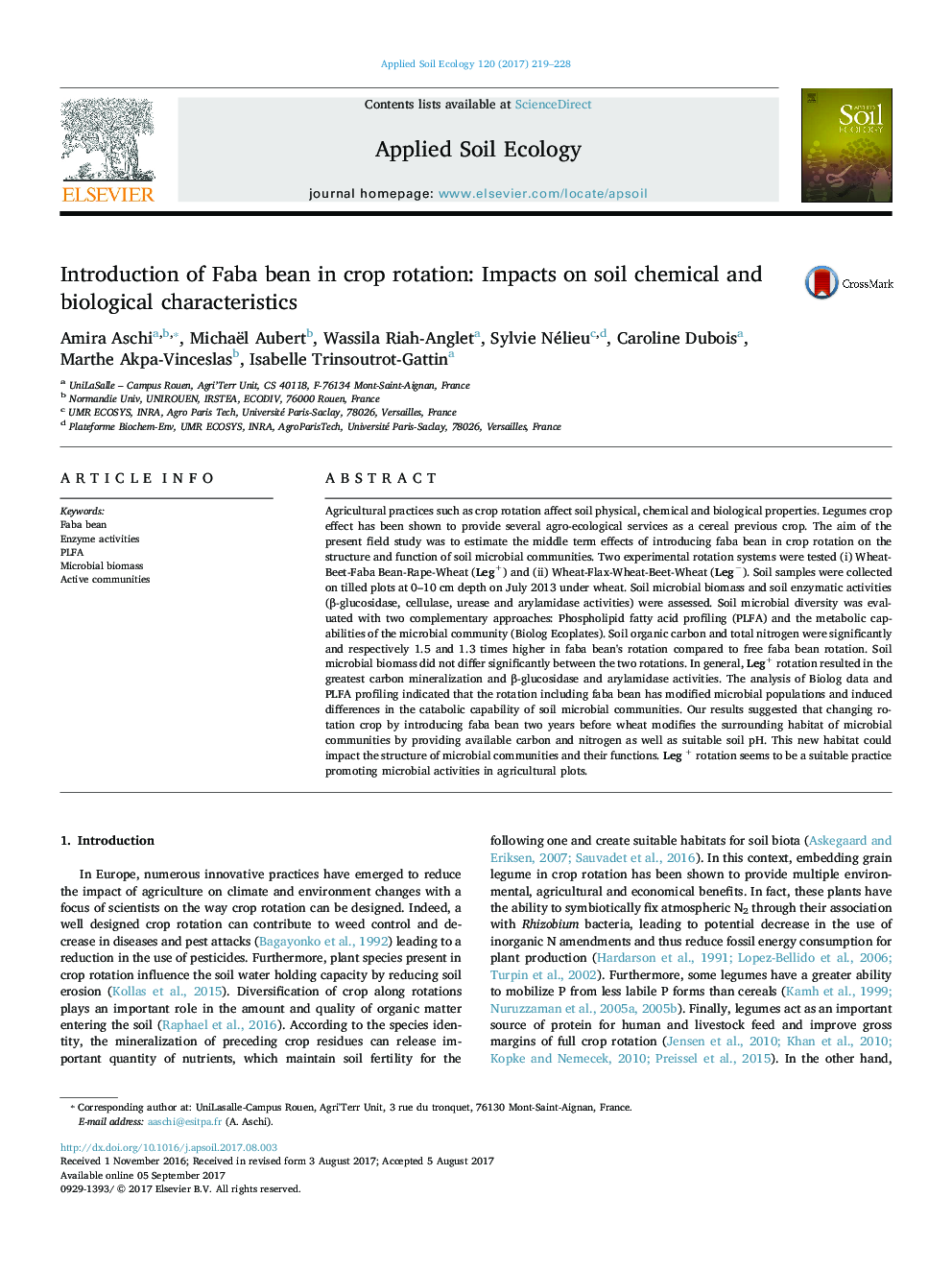| کد مقاله | کد نشریه | سال انتشار | مقاله انگلیسی | نسخه تمام متن |
|---|---|---|---|---|
| 5742590 | 1617764 | 2017 | 10 صفحه PDF | دانلود رایگان |
- Middle term positive effects of faba bean on soil microbial communities.
- Innovative rotation including legumes promote the abundance of gram negative bacteria.
- Enzyme activities and carbon mineralization increase under innovative rotation.
- Including legume in rotation influences potential diversity of bacterial communities.
Agricultural practices such as crop rotation affect soil physical, chemical and biological properties. Legumes crop effect has been shown to provide several agro-ecological services as a cereal previous crop. The aim of the present field study was to estimate the middle term effects of introducing faba bean in crop rotation on the structure and function of soil microbial communities. Two experimental rotation systems were tested (i) Wheat-Beet-Faba Bean-Rape-Wheat (Leg+) and (ii) Wheat-Flax-Wheat-Beet-Wheat (Legâ). Soil samples were collected on tilled plots at 0-10 cm depth on July 2013 under wheat. Soil microbial biomass and soil enzymatic activities (β-glucosidase, cellulase, urease and arylamidase activities) were assessed. Soil microbial diversity was evaluated with two complementary approaches: Phospholipid fatty acid profiling (PLFA) and the metabolic capabilities of the microbial community (Biolog Ecoplates). Soil organic carbon and total nitrogen were significantly and respectively 1.5 and 1.3 times higher in faba bean's rotation compared to free faba bean rotation. Soil microbial biomass did not differ significantly between the two rotations. In general, Leg+ rotation resulted in the greatest carbon mineralization and β-glucosidase and arylamidase activities. The analysis of Biolog data and PLFA profiling indicated that the rotation including faba bean has modified microbial populations and induced differences in the catabolic capability of soil microbial communities. Our results suggested that changing rotation crop by introducing faba bean two years before wheat modifies the surrounding habitat of microbial communities by providing available carbon and nitrogen as well as suitable soil pH. This new habitat could impact the structure of microbial communities and their functions. Leg + rotation seems to be a suitable practice promoting microbial activities in agricultural plots.
Journal: Applied Soil Ecology - Volume 120, November 2017, Pages 219-228
